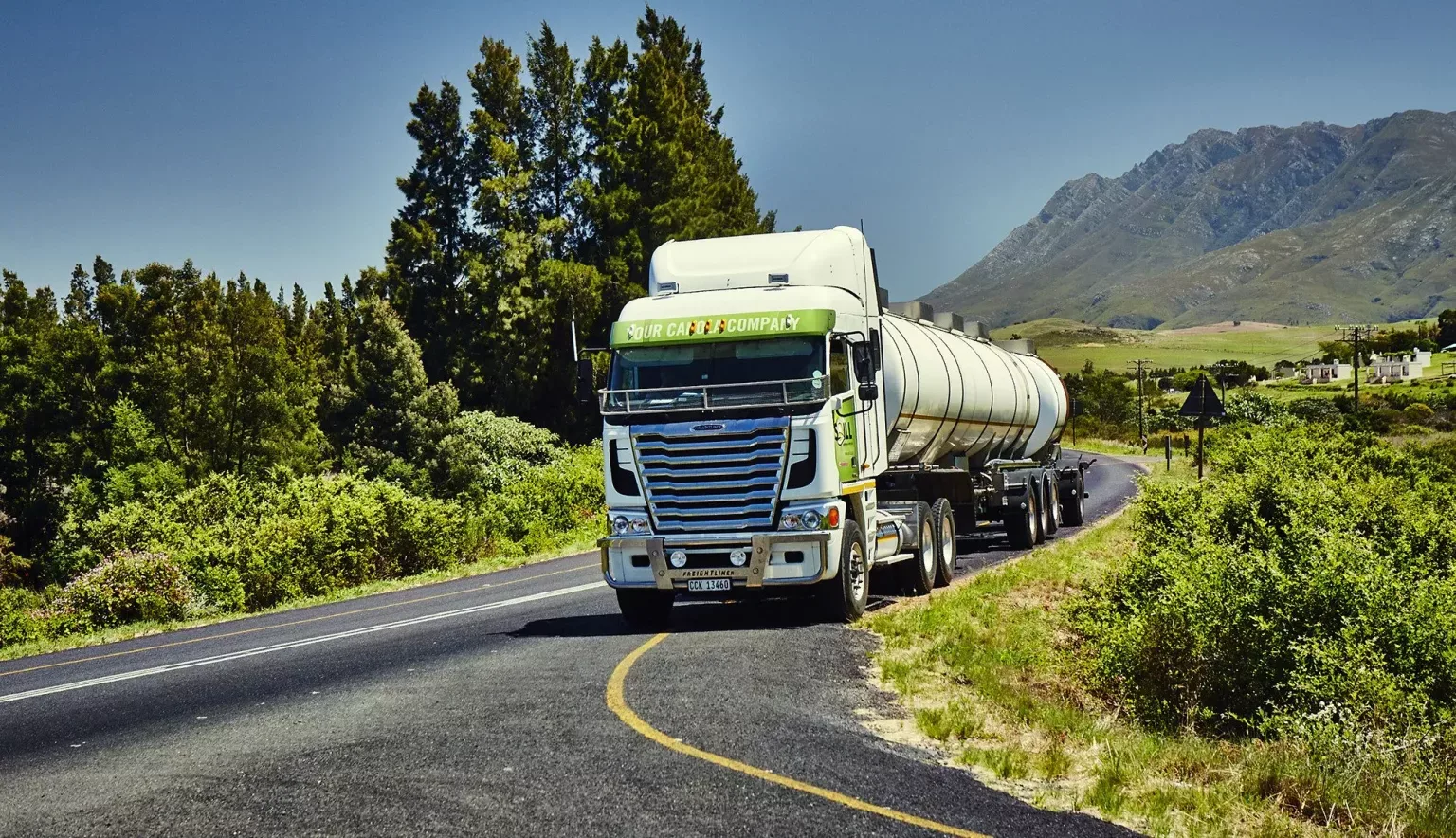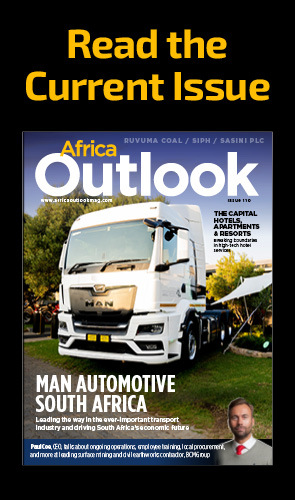Having introduced the canola crop to South Africa in the 1990s, Southern Oil has created a diverse portfolio of products under its B-Well brand which continues to identify with consumers.
THE CANOLA CURATOR
“To be honest with you, my initial inspiration to join the company was because of the brand B-Well – it was one of the few edible oil products standing in a retailer that actually informed a consumer of what they are buying.
“If you don’t know, or back then if you didn’t cook, then you have no idea of the difference between canola, sunflower or soya oil. B-Well, however, educated consumers on shelf and tried to portray the message of why? Why should you buy canola oil? Why is canola good for you? This was what drew me in, and when the opportunity arose, I took it with both arms.”
For Morne Botes, the desire to join Southern Oil was made before the opportunity even arose.
A keen consumer of its B-Well product range and impressed by its openness and transparency, the now Commercial Director is five years into a journey which has seen him learn from peers and understand the local and international edible oil market.
Having established a firm departmental structure across the company, a process which has geared it up for growth, Botes is fully submersed into a drive to establish B-Well as a brand which represents more than just oil, but a range of responsible health foods.
“I now have an exceptionally talented team reporting to me,” he says.
“The next focus area will be to drive volume growth through our sales team, further develop and build our brands through marketing, work on efficiencies in distribution to improve on service levels and decrease costs, and work on the next phase of innovative product development.
“Southern Oil has provided me a platform to be the best I can be, and this has given me the opportunity to provide the best for the company to drive growth.”
KICKSTARTING THE CANOLA TREND
Much of the innovation Botes refers to revolves around the rise of canola, a crop introduced by Southern Oil into South Africa in 1995.
“The primary reason behind introducing canola into the country was to offer farmers an alternative rotational crop solution,” the Commercial Director explains. “The first several years were spent testing and a fair amount of learning took place.
“Now we are able to offer a farmer an attractive financial solution as a rotational crop to wheat that also puts nitrogen back into the soil, meaning the following year’s crop sowed into the field will generate greater yields.”
Since being brought into South Africa, the industrial customer base for Southern Oil has grown with more manufacturers using canola as a primary ingredient in their products, a shift which has allowed the company to benefit from heightened awareness of the health benefits associated with canola.
This has solidified the platform from which Southern Oil’s product research and development can take place, and Botes is eager to prioritise the storytelling element of B-Well’s next generation batch of products.
“Southern oil is focusing on building brands, and not only selling a commodity,” he adds. “There is an enormous number of products for a consumer to choose from, and if there is no brand value then price is the primary driver for the decision.
“Changing the consumer’s purchasing decision driver from price to brand is done through making your product distinguishable and adding value, so that the consumer is willing to select our product above another product on shelf.”
Such development will, clearly, rely on a slick operation from farming through to wholesale and retail distribution.
In terms of raw material, the 2018/2019 year saw Southern Oil process a canola crop of 105,000 metric tonnes, with Botes estimating a near 10 percent rise for the 2019/2020 period (115,000 metric tonnes).
“Our dedicated agricultural team assists farmers with knowledge and expertise in growing canola seeds,” adds Botes.
“Southern Oil has 420 independent farmers supplying seed to our silos around the Western Cape, and being the sole crusher of canola seed in the country means we have a responsibility to develop the market and provide growth opportunities to these important partners.”
Many of the company’s 517 employees are engaged in the numerous logistics and manufacturing processes that take place out of Swellendam and Mooreesburg (Western Cape), these facilities able to crush and/or refine numerous types of oil beyond canola, including sunflower, safflower, grape seed, soya and olive.
Southern Oil also trades in palm, sesame and nut oils, servicing in excess of 1,600 customers and exporting to 10 countries worldwide.
DIVERSIFYING
In Mozambique, the firm has recently acquired a coconut crushing facility.
Based in Inhambane, the purchase has opened up a new line of product development which includes refined and crude coconut oil sold in bulk or packed, while protein from the seed is sold into the animal feed market.
The brand in question is named Nuts About Cooking, something which Botes believes holds significant opportunity to drive further innovation into the market.
In another bid to stay on trend with consumers, Southern Oil is placing sustained emphasis on developing its portfolio of plant-based products. “There is a strong movement in the world towards these alternatives, with several driving factors, including environmental, ethical and health reasons,” says Botes.
“Southern Oil launched under the B-Well brand a vegan mayonnaise that is canola-based (high in Omega 3) and endorsed by The Heart and Stroke Foundation South Africa as it adheres to the heart and strokes criteria for lower sugar and salt levels, which means it touches all three reasons for plant-based consumer switching.
“This, along with the sensational taste, has seen consumers switch in large numbers to B-Well Mayo. We know that consumers are looking for alternatives – it is now our task to ensure we offer the best quality product, so that consumers not actively looking for plant-based products want to purchase B-Well purely because of the taste.
“If the mayo is any indication of how this segment will grow, then there is a very exciting future ahead of us, and hopefully we will bring some innovation to the market.”
These new lines of business naturally lead to a larger network of suppliers, suppliers which Botes describes as genuine partners in the company.
Indeed, Southern Oil’s stated vision is ‘to provide optimal value to all stakeholders, from soil to consumer’, soil representing the hundreds of farmers who grow canola and other crops used in the likes of B-Well and other products.
Partnerships extend far beyond farming suppliers, however, and for Botes, this is all about servicing the customer.
“Being the sole crusher in effect means that, if we are not able to supply products to our customers, then the customers’ production or sales within the category may stop,” he explains. “Therefore, ensuring consistent supply from raw material, packaging material, production equipment and consumables, and logistics is a critical aspect of our business.
“Considering that supply and service is a key differentiating factor within our organisation, we rely heavily on strategic partnerships and exceptional service level agreements to ensure the consumer gets his or her product on time and in full.”
Looking ahead, it is Botes’s priority to ensure that this differentiating level of quality and service remains front and centre of Southern Oil in everything it does.
Whether it be developing the B-Well brand, growing the value-added wing of the business or ramping up overall production capacity, the Commercial Director is confident that the company’s uncompromising standards will remain.
He signs off by stating: “Focusing on training and upskilling our staff is a critical factor in the growth of the organisation. Although Southern Oil is based in Swellendam, it is still competing in an international market with ever growing competition from international players.
“Innovation is also a key priority for the business. Innovation is not only centred around new and unique development, but also consists of incremental changes to improve efficiencies and effectiveness. We need to continuously question the norm, evaluate our business model, procedures and the fundamental way we do business.”

























